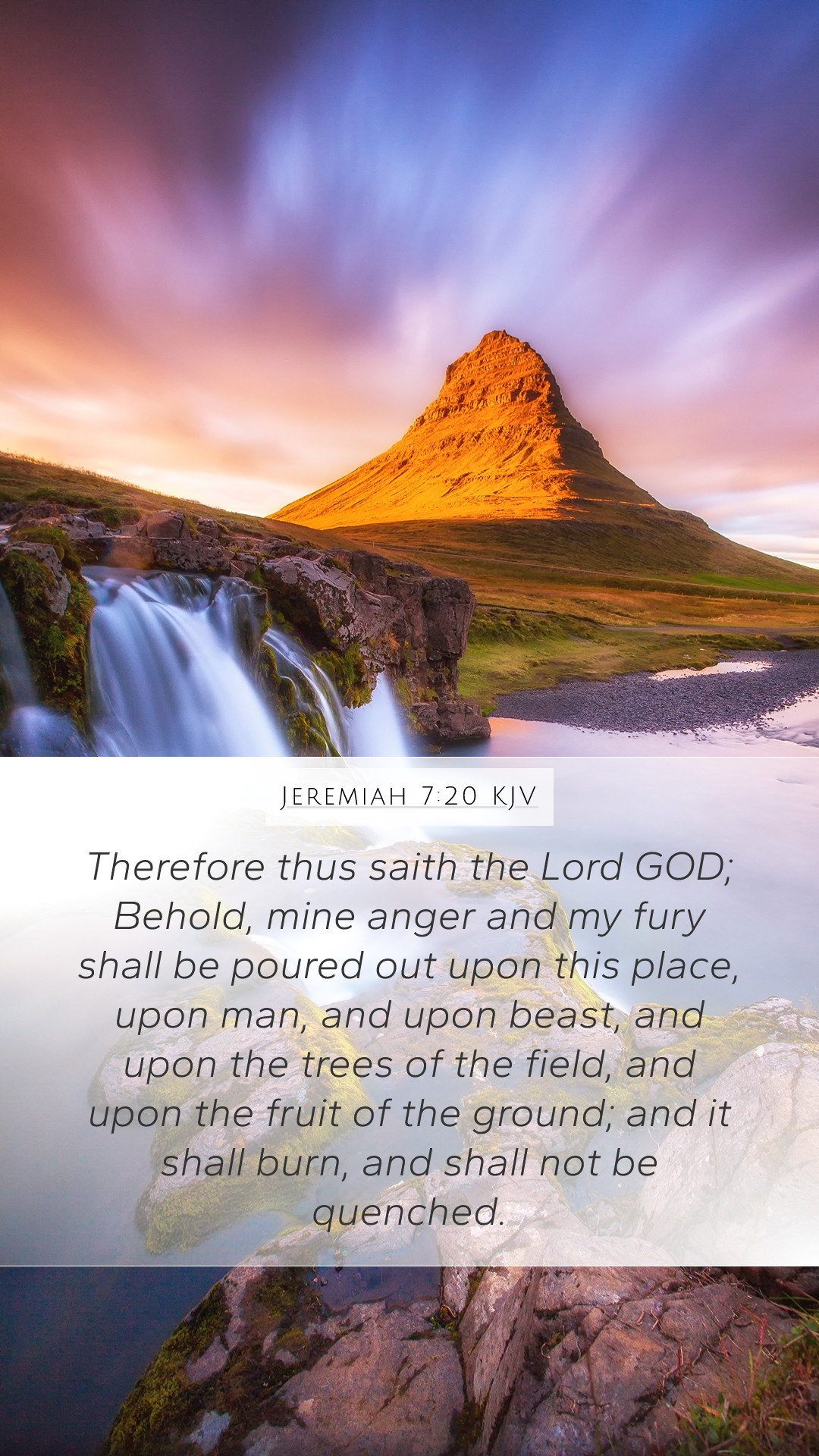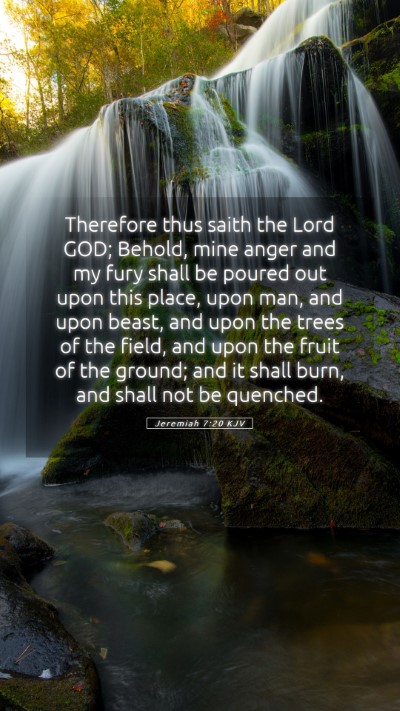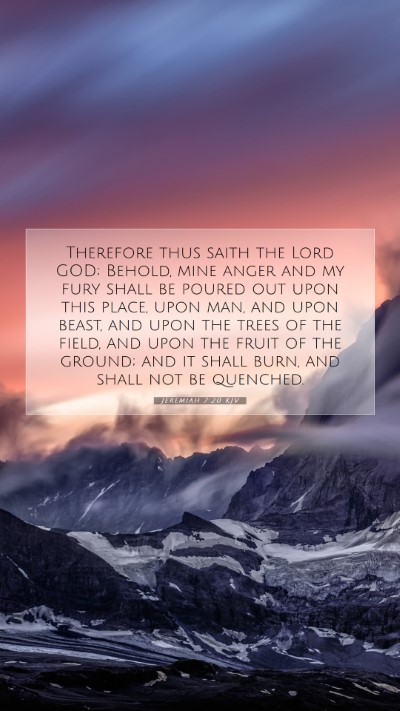Understanding Jeremiah 7:20
Jeremiah 7:20 states: "Therefore, thus says the Lord God: Behold, My anger and My fury will be poured out on this place—on man and on beast, on the trees of the field and on the fruit of the ground, and it will burn and not be quenched." This verse serves as a stark warning concerning the dire consequences of turning away from God.
Overview of Jeremiah 7:20
This passage is part of a larger message from God through the prophet Jeremiah, aimed at the people of Judah who had strayed from their covenant with Him. The verse conveys God's impending wrath due to the idolatry and disobedience of His people.
Commentary Insights
-
Matthew Henry's Commentary:
Matthew Henry emphasizes God's justice and the seriousness of incurring His wrath. He discusses the implications of God's anger being poured out across all creation — man, beast, plants, and land. This universal judgment illustrates the extent and severity of divine displeasure.
-
Albert Barnes' Notes:
Barnes highlights God's fire as a symbol of judgment, reflecting that the consequences of sin are inescapable and devastating. He further points out that the reference to burning "and not be quenched" signifies a complete and utter destruction that serves as a final reminder of God's holiness.
-
Adam Clarke's Commentary:
Clarke provides contextual analysis indicating that this declaration serves as a pivotal moment in the prophetic message of Jeremiah. He discusses the connection between disobedience and divine retribution, focusing on the holistic devastation caused by the nation’s disregard for God's laws.
Key Themes and Meanings
This verse carries several key themes:
- Divine Anger: God's anger is a just response to sin. This reflects the nature of God as righteous and holy, unable to tolerate disobedience.
- Universal Judgment: The imagery of man, beast, and land suffering emphasizes the complete repercussions of turning away from God. It signifies that sin does not only affect individuals; it can have societal and environmental consequences.
- Irreversible Consequences: The phrase "not be quenched" stresses that there are moments when God’s judgment is irrevocable, indicating a point of no return for a nation or individual.
Application for Today
In applying this verse today, we can reflect on our own lives and societies:
- Self-Examination: Are we harboring sin in our lives that could invoke similar consequences? Regular self-reflection and repentance are vital.
- Consequences of Rebellion: Understanding that actions have consequences can motivate us to live righteously, acknowledging that our choices affect others, not only ourselves.
- Encouragement to Repent: This verse serves as an encouragement to seek God’s mercy and foster a sincere relationship with Him before judgment is realized.
Related Bible Cross References
- Isaiah 66:15-16 - Discusses God's judgment through fire.
- Ezekiel 22:31 - Speaks of God's wrath against Israel's sins.
- Romans 1:18 - God's wrath against all unrighteousness is revealed from Heaven.
Conclusion
In summary, Jeremiah 7:20 serves as a powerful reminder of God’s righteous anger and the serious consequences of sin. Drawing from the insights of various commentaries, we gain a deeper understanding of the text, stressing the importance of obedience and the dire ramifications of turning away from the Lord.
This verse challenges us not only to reflect on our personal sin but also to understand the broader implications of turning away from God within our communities.


